Yorgos Lanthimos’ latest film Bugonia, starring frequent collaborators Emma Stone and Jesse Plemons, is a modern masterpiece full of shocking absurdist twists and turns. The most haunting thing about it might be that it feels so true to life, so honest, and ultimately, darkly, completely unsurprising.

While Lanthimos plays in a high-concept darkly comedic sandbox, like many satirical takes before, he’s nailing exactly who we are right now and where we are as a society. In a year of movies that echo the genius of the greats of the prior century, like Paddy Chayevsky’s Network and Stanley Kubrick’s Dr. Strangelove, Bugonia takes another massive swing, and might be the one that finally busts open the collective cultural piñata.
It’s hard to talk about Bugonia’s excellence without contextualizing it in an incredibly incisive year for film. Ari Aster’s Eddington (Aster is a producer on Bugonia as well) flew under the radar a bit, but took literal aim and fired at what happened to our nation’s discourse starting back in the wild and crazy year of 2020, when COVID, social media outrage, plus political pandering and posturing hit a fever pitch.
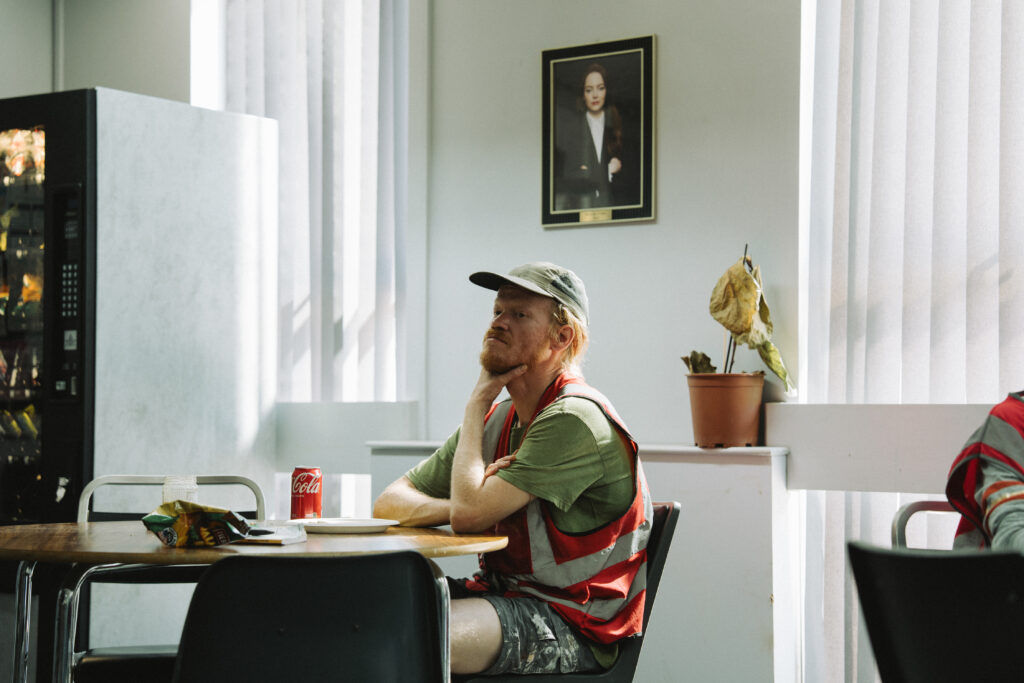
Aster told me in our lengthy exclusive interview during the summer that, to him, that Eddington was “the movie made by Twitter.” Eddington, like Bugonia, targets the entire ecosystem of misinformation and hate, cleverly reflecting on the unique American cultural legacy that feeds into our modern stand-offs (or shoot-outs).
Zach Cregger’s horror film Weapons moved the ball further down field with its biting horror commentary on the nightmare of violence against our youth and it’s ensuing blame-game. Paul Thomas Anderson connected again with his masterful epic about ex-revolutionaries running amok in One Battle After Another, all trying to reconcile the sins of the metaphoric and literal father with what hope exists for a peaceful and tolerant future.
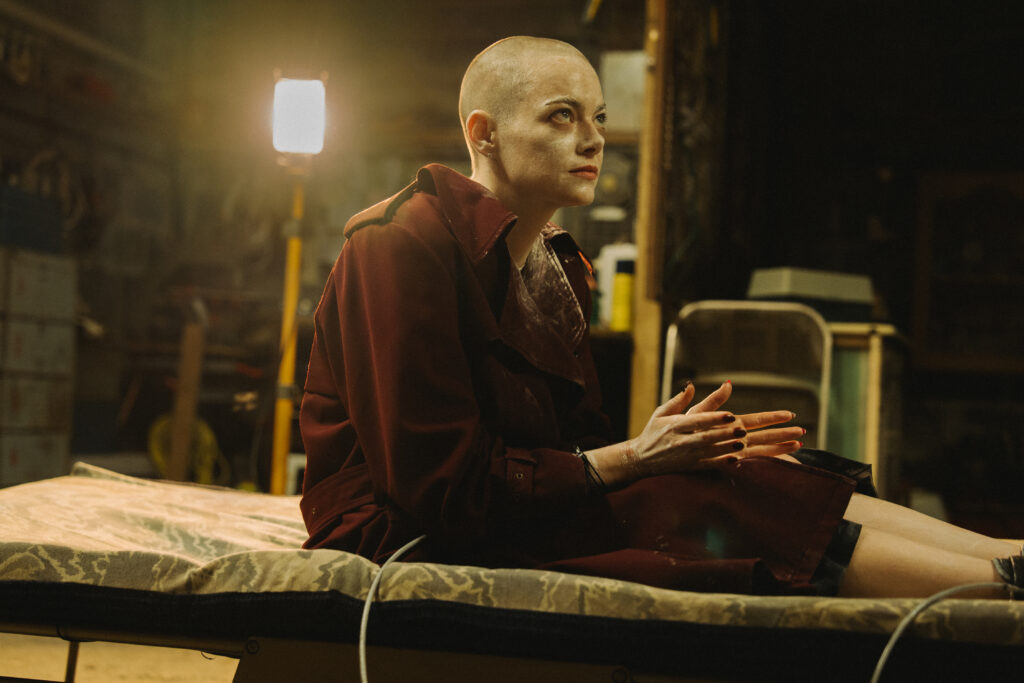
Despite all these excellent movies taking well-timed shots at the state of our culture and discourse, Bugonia truly delivered a fatal blow in its chilling final scenes. On the way there, the film builds a narrative around our two contrasting Americas. A morning routine sequence does all the work here. Emma Stone’s Michelle is the one living as large as possible, ensconced in a glassy tech-boom wealth world dripping with nearly inhuman luxury, success, and a non-stop grind ‘winner’ mindset. Jesse Plemons’ Teddy lives in something closer to squalor, a dilapidated old country home in the middle of the sticks surrounded by grossly human elements like dirty dishes and past generations’ knick-knacks and junk. All of these tiny details feed into the larger concepts perfectly, while also explaining exactly who these people are.
The economy of narrative here is as good as it gets. The way Lanthimos uses framing, even lens choices, and depth of field to indicate narrowing and thin perspective is perfect. Fixation on one plane of focus, for example, becomes an early motif.
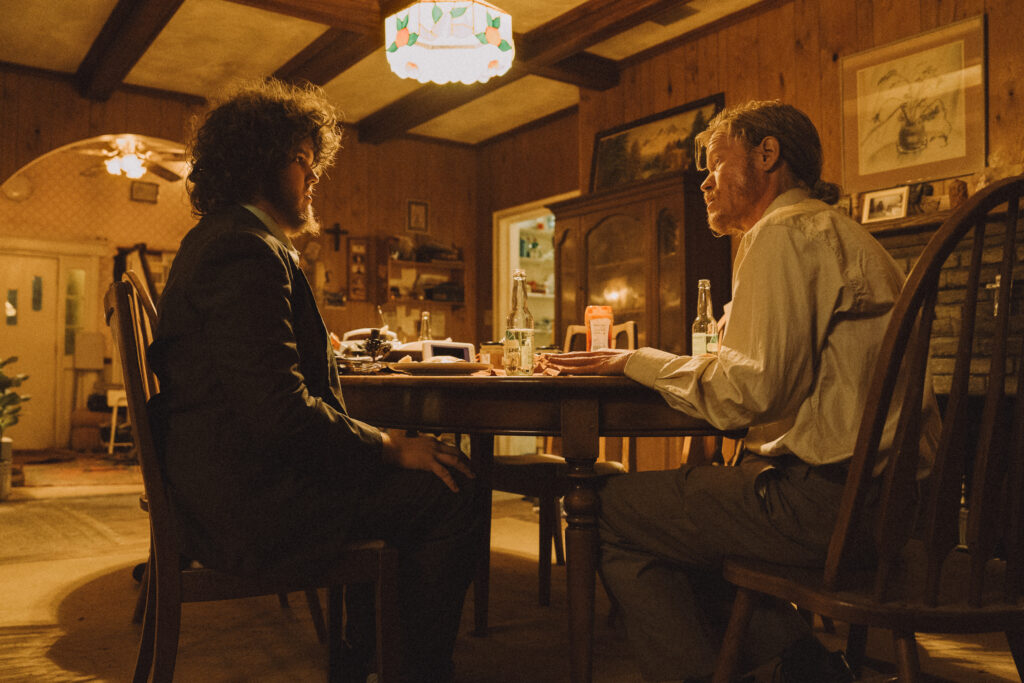
The comedy comes in the absurd reasons for Teddy’s grand plan to kidnap tech giant Michelle with the somewhat reluctant help of the “Lenny to his George”, cousin Don, played in scene-stealing fashion by Aidan Delbis. We learn that Teddy and Don feel they have been wronged deeply by society. To Teddy, the culprit is Michelle.
We learn all the details of their prior connection through backstory later on, but we don’t need that to understand what’s fueling this. The gap between the haves and have-nots is staggering in America today. It gets more staggering with each passing day.
Bugonia is a remake of Save The Green Planet!, a South Korean film from 2003, but its application to America today is perfectly timed. We’ve seen unhinged and mentally unsound acts of criminality and violence in the public arena often over the past few years, from the attack on the United Health Care CEO to the attack on outspoken conservative Charlie Kirk. Teddy’s logic and his actions are as insane as they are familiar. Therein ultimately lies the film’s biggest twists and turns.
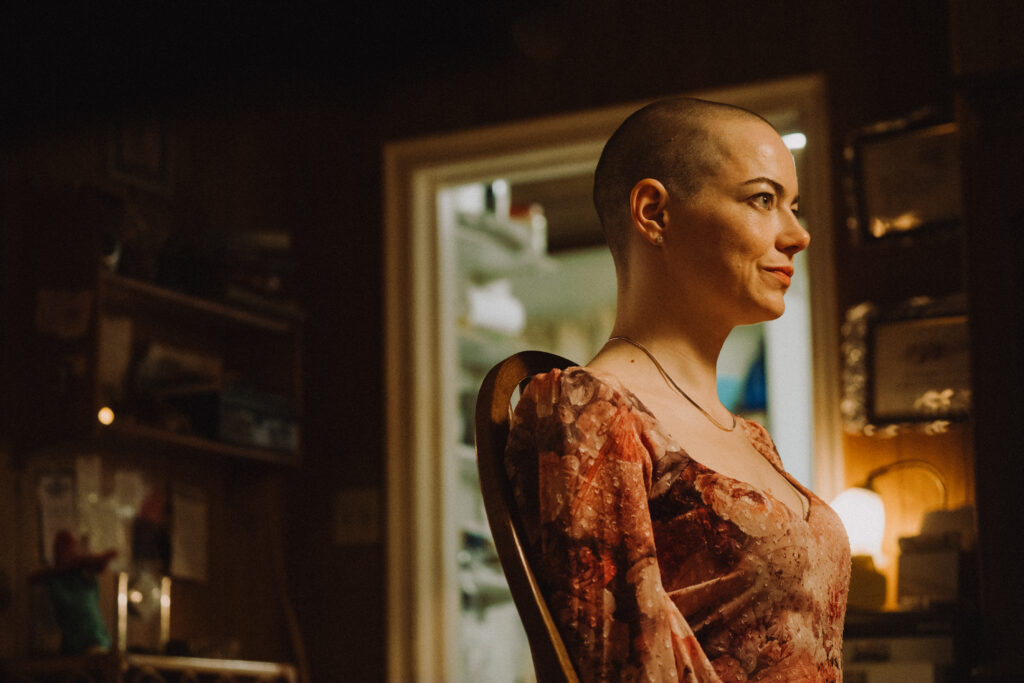
Bugonia’s cinematic legacy, though, doesn’t just end with other relevant satires of 2025 or prior; it has a lot in common structurally with Rob Reiner and William Goldman’s masterful screen adaptation of Stephen King’s Misery. There are very familiar beats and sequences to the structure of Bugonia, with its added layers of comedy and current social relevance making it a perfect example of the type of film that takes what others have done in the art form and builds upon it to craft new, powerful meanings specifically for today.
The performances in Bugonia are one of the true standouts. Plemons is as good as he’s ever been at the tortured, confident, misguided Teddy (and he’s been excellent ever since Friday Night Lights). Stone continues her evolution as a chameleon, taking on another role that pushes her far outside the bounds of traditional stardom and into physical and emotional characterizations we’ve never really seen before. The two of them are making a case for a kind of character-actor stardom that the industry hasn’t really seen at its forefront since talents like Meryl Streep, Dustin Hoffman, and Gene Hackman began to emerge in the 1970s.
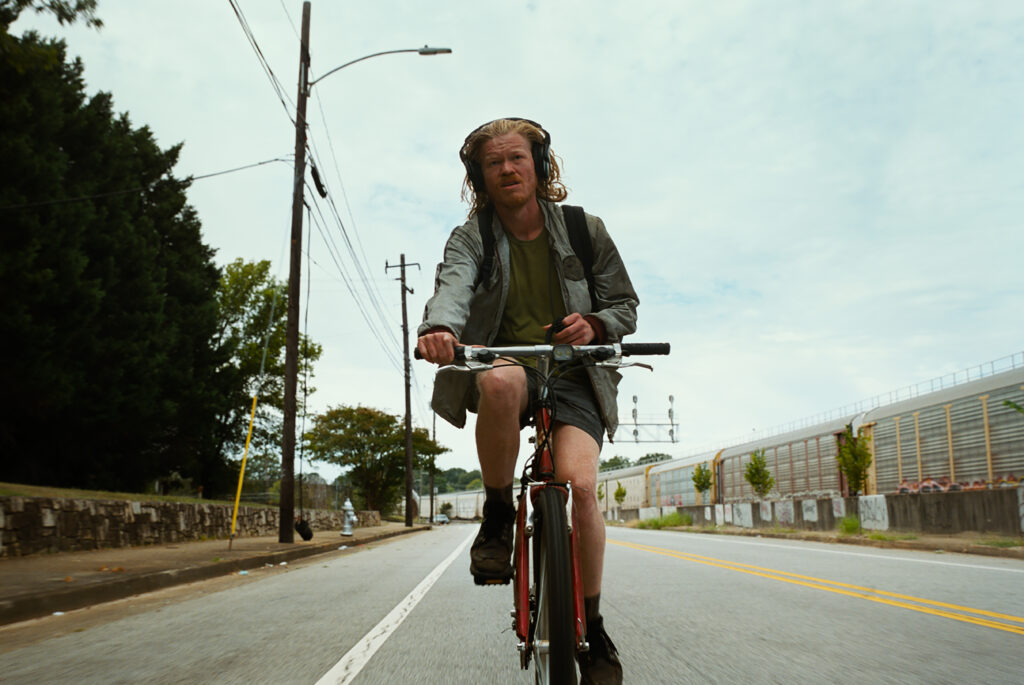
We’re lucky to have these talents working together in this way with a filmmaker like Lanthimos, who brings attention to detail and economy of movement to every inch of the movie. The Vista-Vision format, along with the use of Kodak 35mm stock, adds layers to Bugonia that give it an artfulness many modern features lack. Cinematographer Robbie Ryan is a longtime collaborator of Lanthimos, and he uses the tools to craft lasting images, from the sickly basement glow to the cold, lifeless upper floors of a tech giant’s offices. The detailed work on the bees and their honey stands out in particular as one of the film’s most prevalent metaphors, shot in a way that adds suggested meaning and intent beyond the obviously stated ones.
All told, Bugonia is another excellent movie for our time in a year filled with them. While the darkness of the state of affairs creeps in closer around us all, artists like Lanthimos and what Stone referred to in one interview as their now ‘stock’ team, continue to thrive, drawing meaning, parallels, and chilling conclusions about who we are, what we’ve become, and what is left to do about any of it.
For more Reviews, make sure to check back to That Hashtag Show.

![Yorgos Lanthimos hits new heights with his modern Masterpiece, BUGONIA [REVIEW]](http://18.211.146.234/wp-content/uploads/2025/10/att.s4i8i6niUTy6cMlasqdzbpluulZqj8Lg4nhMs-BK-zo.png-1280x640.jpeg)

![Netflix’s “Lou” is A Disappointing Action-Thriller, Elevated by The Incredible Allison Janney [REVIEW]](http://18.211.146.234/wp-content/uploads/2022/09/project_20220926_1546265-01-440x264.png)

